Country Profiling Afghanistan
Historical timeline of the Country
The land that is now Afghanistan has a long history of domination by foreign conquerors and strife among internally warring factions. No one has ever won a war against the Afghan people.
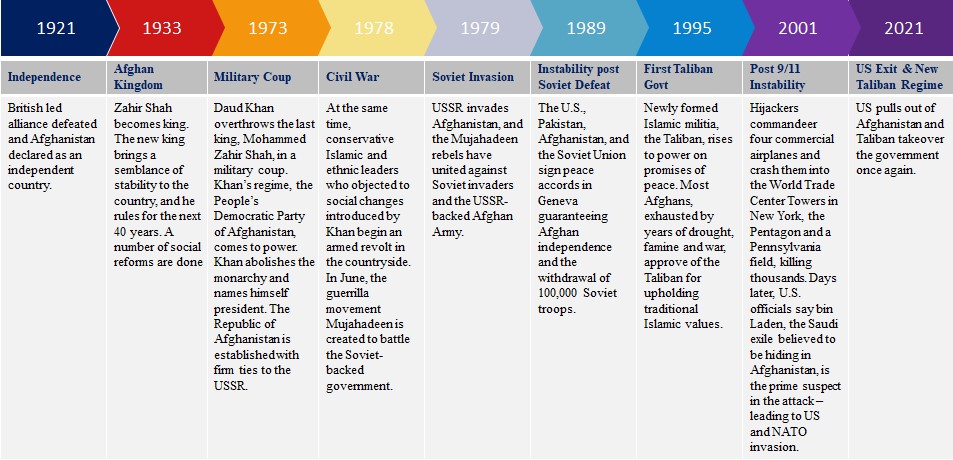
Afghanistan Overview
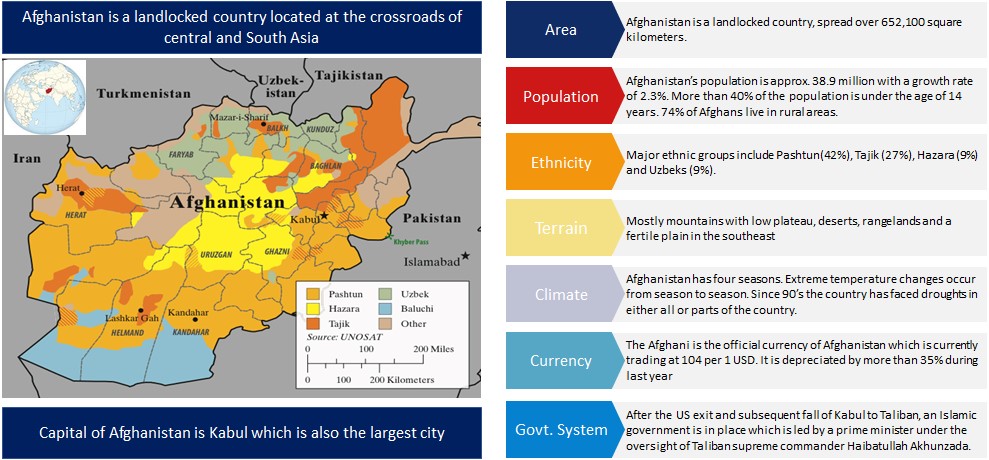
Population Statistics
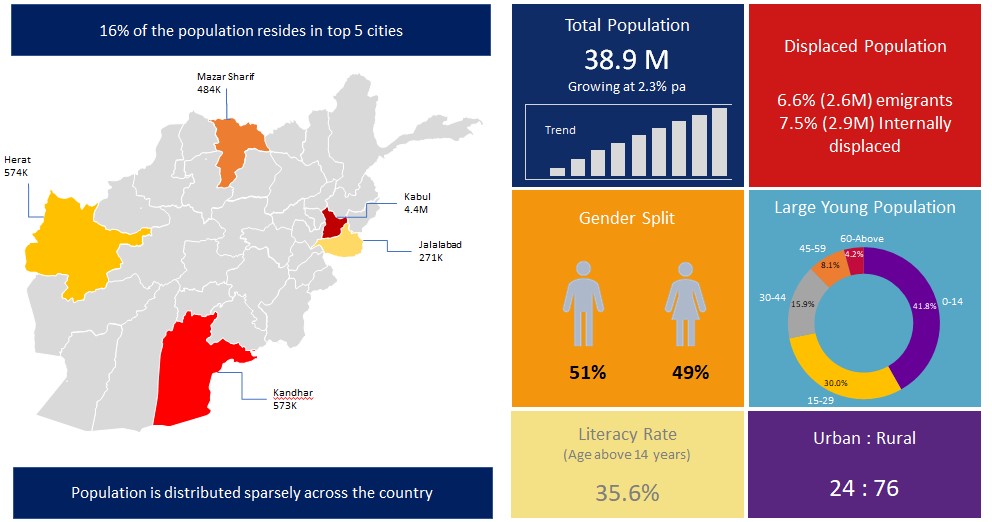
PESTL Analysis
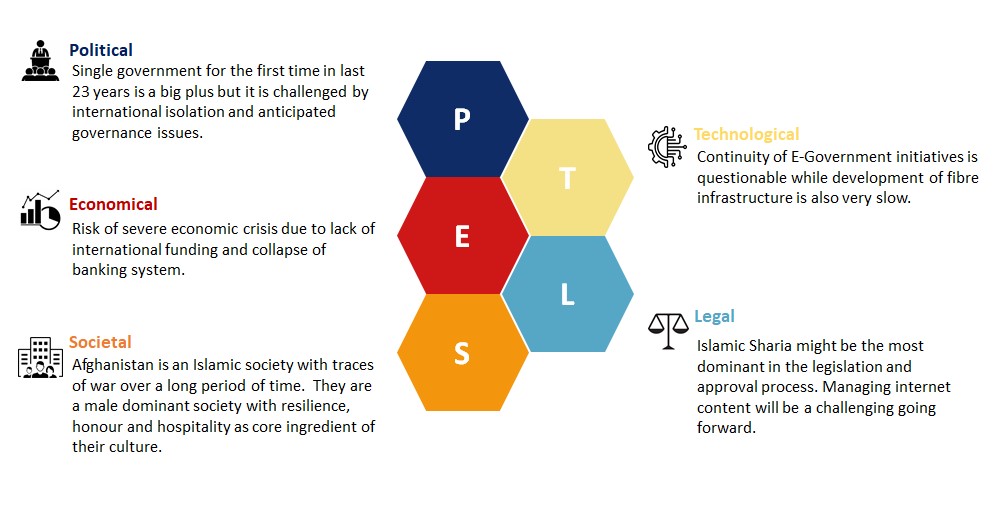
Nextgen Taliban
Though Taliban has ruled before, this nextgen Taliban appear to be more motivated to make Afghanistan a peaceful and progressive country
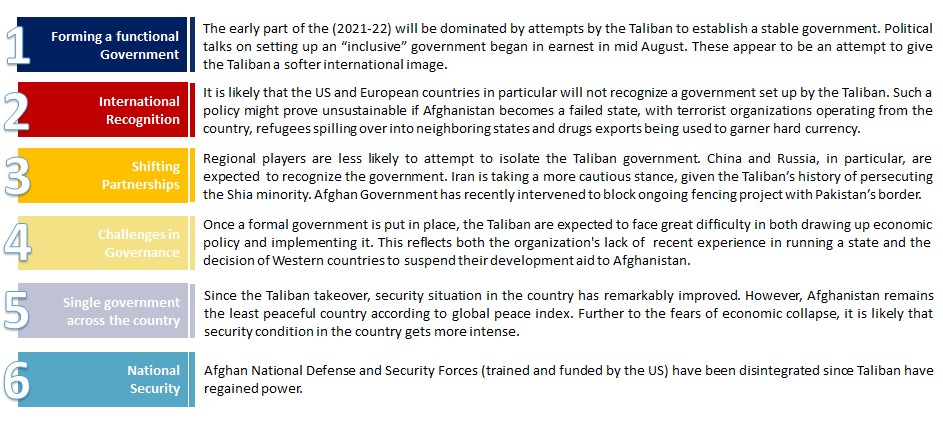
Afghan Economy
The economy desperately needs bail out by international
community
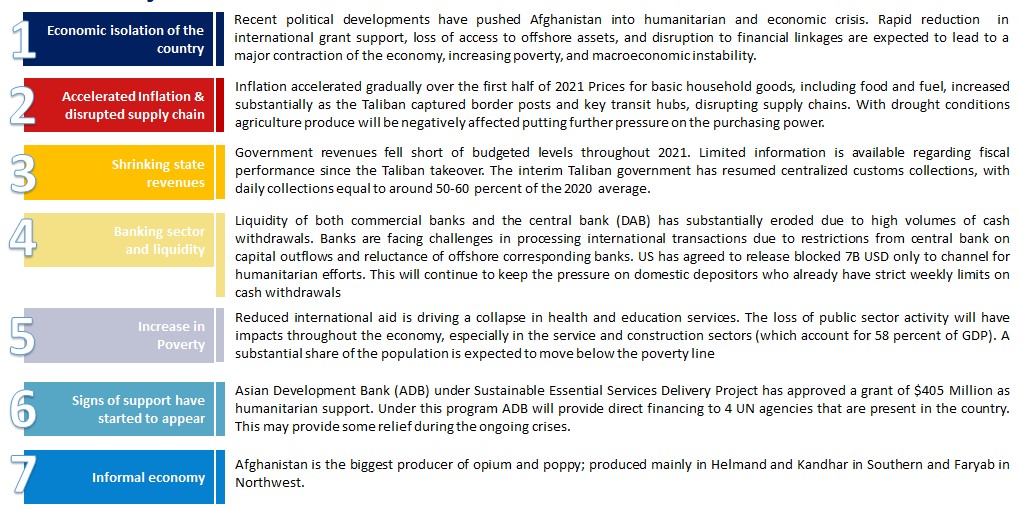
Economic Indicators
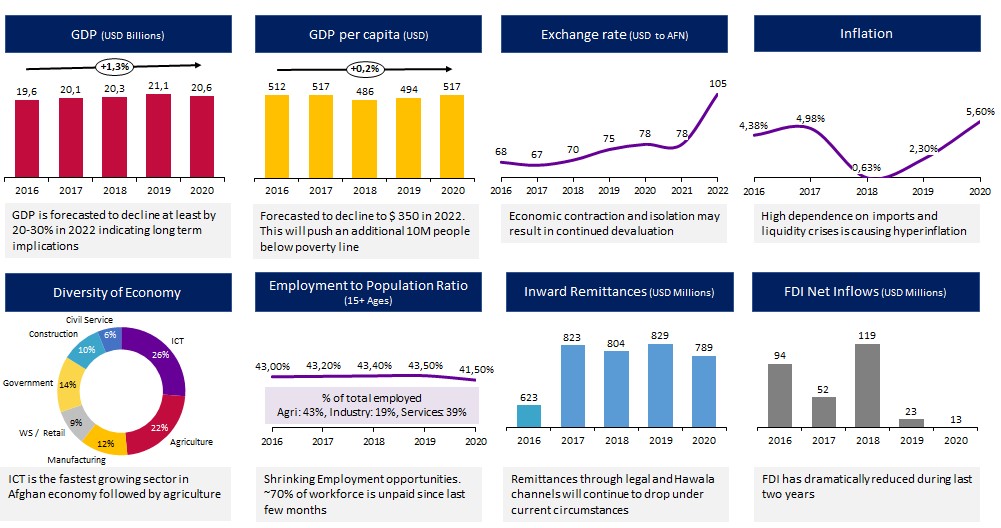
Societal
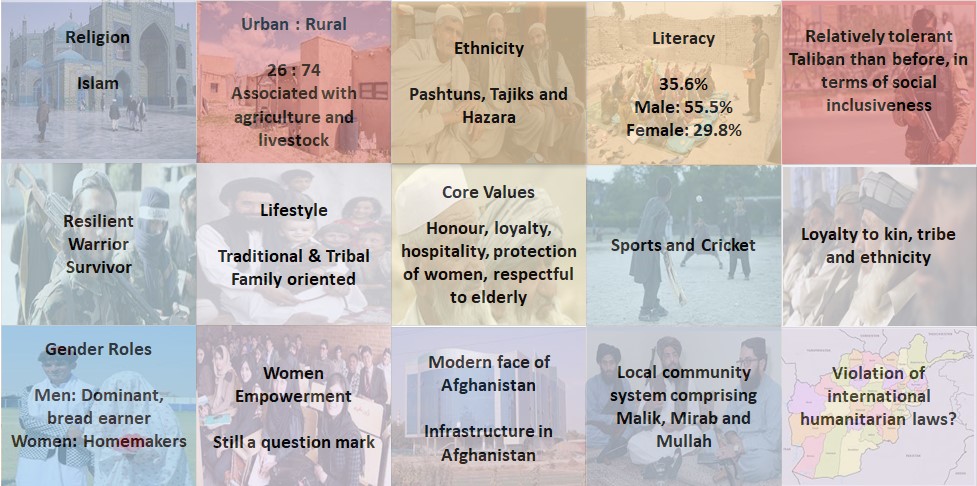
Technology
Afghanistan has been embroiled in conflict for several years, nevertheless, opportunity still exists for decision-makers at the national level in the Islamic Republic of Afghanistan. The decisions and policies they apply at the local and national level will arguably determine the path and commitment of the Afghan Government towards introducing new technologies and innovations in various areas.



Legal

Afghanistan Challenges & Risk Analysis

1. Political Instability: The current political situation in Afghanistan is still volatile creating an uncertain and risky business environment.
2. Governance: Lack of experience will be a major detriment for Afghanistan.
3. Shrinking economy: Salaries haven’t been disbursed to the 500k+ government servants. Huge ratio of unemployment will negatively impact the economy.
4. Banking (liquidity): Banks have imposed $200 per day withdrawal limit results and DaB funds are on hold with US Government. Liquidity crisis will further aggravate in short term but stabilize in long term.
5. Banking (trust): The country hadn’t yet come out of the trust deficient shock due to Bank of Kabul fraud ($1.3b) in 2010
6. Informal economy: Growing dependence on Hawala system will negatively impact financial services business.
7. Lack of foreign funding: UN agencies have been very active and most funding was previously channeled through them. Lack of support to the current Government will negatively impact foreign funding resulting in negative impact on the entire economy.
8. Famine: Significant food insecurity estimated to impact 50% of the population will reduce purchasing power
9. Currency devaluation: Due to high dependence of telecom sector on US$, the cost of doing business will increase.
10. Collapse of conventional legal system: Legal system is on hold for now. Since the previous Govt had also claimed that the legal system is not repugnant to Islamic Shariah law, it might help and the courts resume soon.
11. International isolation: Though in the short term it will be a challenge, as NGOs are shifting towards informal system but still supporting Afghanistan. The situation is expected to diffuse in the medium term.
12. Slowdown of digitization: Digitization has made significant progress mostly funded by UN. It will have big impact on e-Government but not directly on businesses.
13. Corruption: Afghanistan ranked 174/180 on Corruption Perceptions Index. This is likely to change with a single government in place.
14. Women empowerment: Remains a perception challenge for the Govt but it is likely to have little impact on business.
2. Governance: Lack of experience will be a major detriment for Afghanistan.
3. Shrinking economy: Salaries haven’t been disbursed to the 500k+ government servants. Huge ratio of unemployment will negatively impact the economy.
4. Banking (liquidity): Banks have imposed $200 per day withdrawal limit results and DaB funds are on hold with US Government. Liquidity crisis will further aggravate in short term but stabilize in long term.
5. Banking (trust): The country hadn’t yet come out of the trust deficient shock due to Bank of Kabul fraud ($1.3b) in 2010
6. Informal economy: Growing dependence on Hawala system will negatively impact financial services business.
7. Lack of foreign funding: UN agencies have been very active and most funding was previously channeled through them. Lack of support to the current Government will negatively impact foreign funding resulting in negative impact on the entire economy.
8. Famine: Significant food insecurity estimated to impact 50% of the population will reduce purchasing power
9. Currency devaluation: Due to high dependence of telecom sector on US$, the cost of doing business will increase.
10. Collapse of conventional legal system: Legal system is on hold for now. Since the previous Govt had also claimed that the legal system is not repugnant to Islamic Shariah law, it might help and the courts resume soon.
11. International isolation: Though in the short term it will be a challenge, as NGOs are shifting towards informal system but still supporting Afghanistan. The situation is expected to diffuse in the medium term.
12. Slowdown of digitization: Digitization has made significant progress mostly funded by UN. It will have big impact on e-Government but not directly on businesses.
13. Corruption: Afghanistan ranked 174/180 on Corruption Perceptions Index. This is likely to change with a single government in place.
14. Women empowerment: Remains a perception challenge for the Govt but it is likely to have little impact on business.
